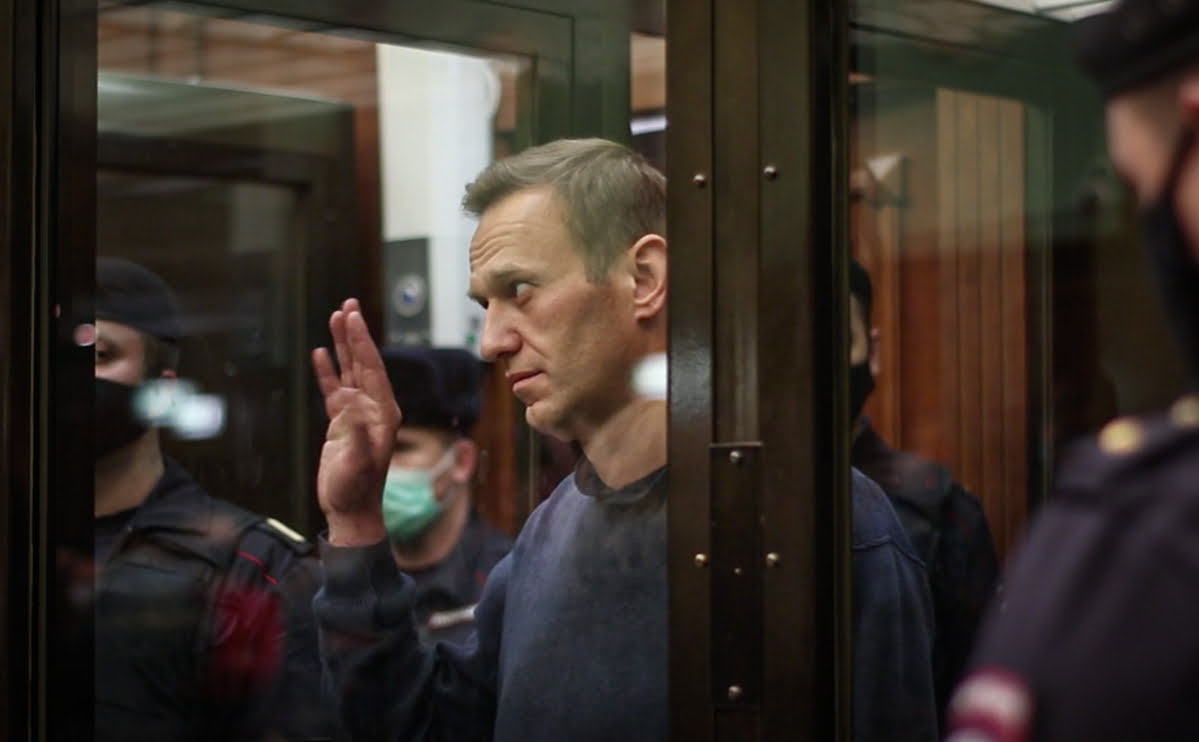During the trial on February 2, 2021, the state prosecutor emphasized: the opposition politician was “the only one to whom the court showed humanity and gave two suspended sentences.” We checked whether this is actually true.
At a visiting session of the Simonovsky Court in Moscow, prosecutor Ekaterina Frolova supported the state prosecution: the Federal Penitentiary Service (FSIN) asked to replace Alexei Navalny’s suspended sentence with a real one. During the hearings, the prosecutor twice stated that the oppositionist is the only person in Russia whom the court twice sentenced to a suspended sentence. Asking questions to the defendant, Frolova said: “You are the only Russian citizen who has been given a suspended sentence twice. Thus, the court demonstrated a humane attitude towards you.” In her own speech, the prosecutor repeated this argument, declaring, that in relation to Navalny “the court showed unprecedented leniency.”
On February 2, 2021, the court considered the FSIN’s submission regarding Navalny to replace the suspended sentence in the “Yves-Rocher case” with a real one. In 2014, Zamoskvoretsky Court of Moscow admitted oppositionist and his brother guilty of fraud. Alexei Navalny was sentenced to three and a half years probation with a probationary period of five years, Oleg Navalny was sentenced to three and a half years in a general regime colony. This was the second punishment for the politician: a year earlier he received five years probation in the “Kirovles case.” Both sentences were appealed to the European Court of Human Rights, which both cases came to the conclusion that during the consideration of the cases, Navalny’s right to a fair trial was violated. In both cases Russia paid compensation policy.
Contrary to the statements of prosecutor Frolova, two suspended sentences for Navalny are, although quite rare, but far from the only case. In 2017, the former mayor of Tambov Yuri Rogachev sentenced to three years probation for official forgery and abuse of power. The amount of damage caused by the official was then estimated at 117 million rubles. A year later Rogachev received the second sentence - this time two years probation for abuse of power.
Similar proceedings against a civil servant took place in Buryatia. In 2019 the court found guilty in “fraud committed by a group of persons by prior conspiracy using their official position on an especially large scale” by the former head of the Tunkinsky district Andrei Samarinov. After initiating a case for causing damage estimated at 39 million rubles, the ex-official made a deal with the investigation and received a three-year suspended sentence. Second sentence to Samarinov carried out a year later - for abuse of power, which led to damage of 12 million rubles. He was sentenced to four and a half years probation.
Not only officials received suspended sentences twice. Employee of the St. Petersburg travel company Tatyana Makeeva in 2018 recognized guilty of fraud: a woman stole about 4 million rubles, which clients paid for vacations at resorts. Makeeva received a three-year suspended sentence with a probationary period of three years, which she violated - in 2020, Smolninsky District Court of St. Petersburg condemned her for similar crimes (although this time 8.6 million rubles were stolen). Thanks to the admission of guilt and partial compensation for the damage caused, the punishment was again suspended: four years and a probationary period of five years.
Lawyer Ilya Novikov, in a conversation with Verified, emphasized that in Russian criminal law there are no rules that allow the imposition of two suspended sentences to be considered a manifestation of “unprecedented leniency” on the part of the court: “Such a layering of suspended sentences is, of course, exotic, but it is quite possible, there are no technical obstacles to this.” At the same time, an admission of guilt or partial compensation for the damage caused is not a mandatory circumstance in order for a person already on probation not to be sentenced to a real prison term in another case. According to Novikov, there are few such precedents, since the leniency of the court often takes the form of a punishment not related to imprisonment, even a suspended one.
Photo: press service of the Moscow City Court
Fake
- https://meduza.io/live/2021/02/02/zamenyat-li-navalnomu-uslovnyy-srok-na-realnyy-den-suda
- https://youtu.be/Jwno_6dog8s
- https://ru.wikipedia.org/wiki/Case_Yves_Rocher
- http://www.consultant.ru/document/cons_doc_LAW_10699/
If you find a spelling or grammatical error, please let us know by highlighting the error text and clicking Ctrl+Enter.







